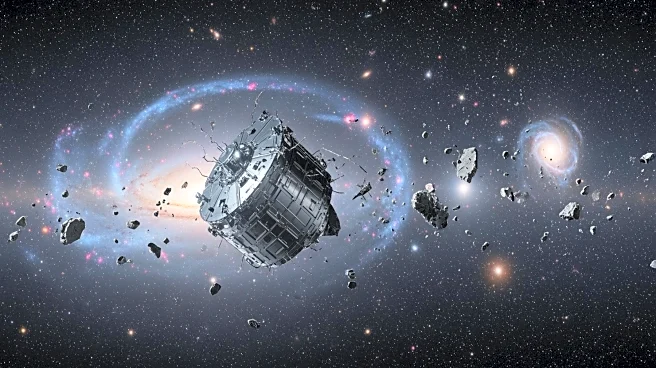What's Happening?
The number of satellites and space debris in low Earth orbit has surged, with over 24,000 objects now orbiting the planet. This 76% increase since 2019 raises concerns about potential collisions and the impact
on space-based technologies. Recent incidents, such as debris from a Chinese rocket landing in Australia, highlight the growing problem. Experts warn that the crowded orbit increases the likelihood of collisions, which could lead to more debris and further risks to satellites and other space assets.
Why It's Important?
The proliferation of space debris poses significant risks to the safety and functionality of satellites, which are crucial for communication, navigation, and scientific research. Collisions could disrupt services and lead to costly damages. The situation underscores the need for effective space traffic management and debris mitigation strategies. International cooperation is essential to address this global challenge and ensure the sustainable use of space.
What's Next?
Efforts to manage space debris will likely intensify, with increased focus on tracking and removing debris from orbit. New technologies and international agreements may be developed to prevent further accumulation of space junk. The space industry and governments will need to collaborate to implement effective solutions and ensure the long-term sustainability of space activities.










